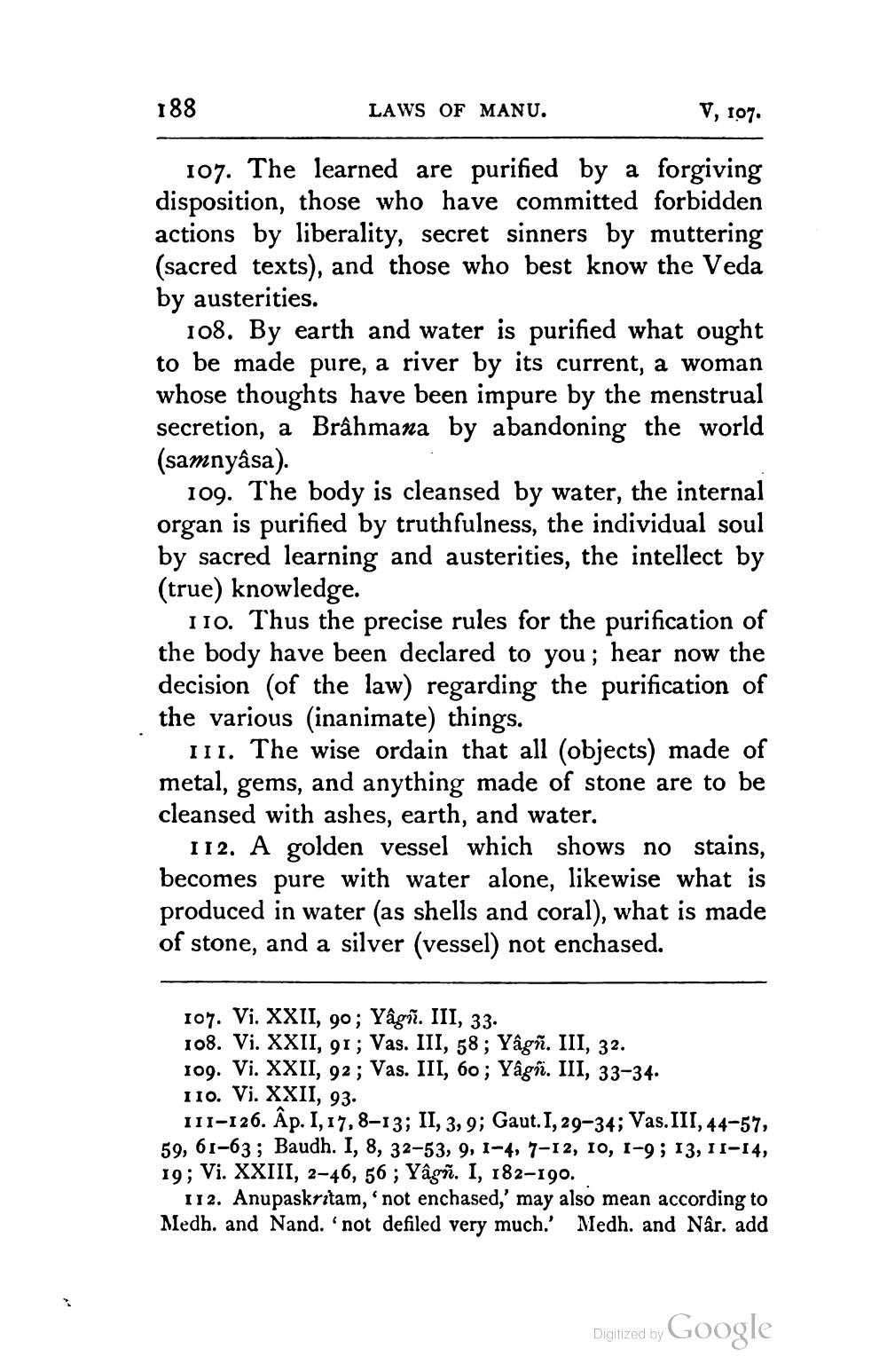________________
188
LAWS OF MANU.
V, 107.
107. The learned are purified by a forgiving disposition, those who have committed forbidden actions by liberality, secret sinners by muttering (sacred texts), and those who best know the Veda by austerities.
108. By earth and water is purified what ought to be made pure, a river by its current, a woman whose thoughts have been impure by the menstrual secretion, a Brâhmana by abandoning the world (samnyâsa).
109. The body is cleansed by water, the internal organ is purified by truthfulness, the individual soul by sacred learning and austerities, the intellect by (true) knowledge.
110. Thus the precise rules for the purification of the body have been declared to you; hear now the decision (of the law) regarding the purification of the various inanimate) things.
III. The wise ordain that all (objects) made of metal, gems, and anything made of stone are to be cleansed with ashes, earth, and water.
112. A golden vessel which shows no stains, becomes pure with water alone, likewise what is produced in water (as shells and coral), what is made of stone, and a silver (vessel) not enchased.
107. Vi. XXII, 90; Yâgñ. III, 33. 108. Vi. XXII, 91; Vas. III, 58; Yâgñ. III, 32. 109. Vi. XXII, 92; Vas. III, 60; Yâgî. III, 33-34. 110. Vi. XXII, 93.
III-I26. Âp. I, I7,8-13; II, 3, 4; Gaut.I, 29-34; Vas.III, 44-57, 59, 61-63; Baudh. I, 8, 32-53, 9, 1-4, 7-12, 10, 1-9; 13, 11-14, 19; Vi. XXIII, 2-46, 56 ; Yâgñ. I, 182-190.
112. Anupaskritam, not enchased,' may also mean according to Medh. and Nand. 'not defiled very much.' Medh. and Når. add
Digitized by Google




